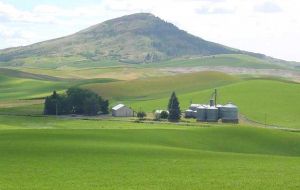MercoPress. South Atlantic News Agency
Land concentration and soy “pools” boom debate in Uruguay

The debate on land concentration and the so called (financial) soybean pools, which is currently one of the main issues behind the Argentine farmers' conflict, has reached Uruguay where apparently the oil seed boom is rapidly displacing dairy farms.
Although the debate in Uruguay on land ownership by foreigners, particularly along border areas (with Brazil), has been raging for several years with not much more than a few congressional initiatives, the discussion on land concentration promises to be more controversial given the alleged "progressive" leaning of the current ruling coalition. In support of its position an organization of small farmers (National Commission on Rural Promotion), CNFR, recently released a survey showing that eleven of the so called "financial pools" concentrate 25% of the soybean planted area and in the 2005/06 crop, 6% of these companies (131) had control over 54% of the soy area. Furthermore the survey showed that between 2005 and 2008 the gross earning per soybean hectare jumped from 95 to 431 US dollars. In that period the value of Uruguay's soy exports more than doubled from 100 to 209 million US dollars. CNFR points out that the rural sector is exposed to the greatest inequality in income distribution and this becomes even worse with soybeans, since in Uruguay the oilseed industrialization process is limited. According to the report dairy farming employs 23 people every 1.000 hectares plus the families living in the settlements. For soybean this drops to two people per 1.000 hectares. The advance of the soy crop is estimated to have taken over 100.000 hectares of dairy farming and other family activities. Furthermore 92% of the area planted with soybeans is rented "which means businessmen have no commitment to improving or conservation of the soil as a natural resource", alleges CNFR. The presence of these groups with huge financial resources is leading to "a damaging concentration of production, trading, pushing long established families from their farms, speculation and production distortions", adds CNFR Regarding proposals CNFR recalls that in many countries owning and exploiting land is regulated and non resident foreigners are banned from acquiring land. "There's nothing to invent, Uruguay can easily adopt and adapt farming experience from other countries far more advanced in production methods and volumes".




Top Comments
Disclaimer & comment rulesCommenting for this story is now closed.
If you have a Facebook account, become a fan and comment on our Facebook Page!